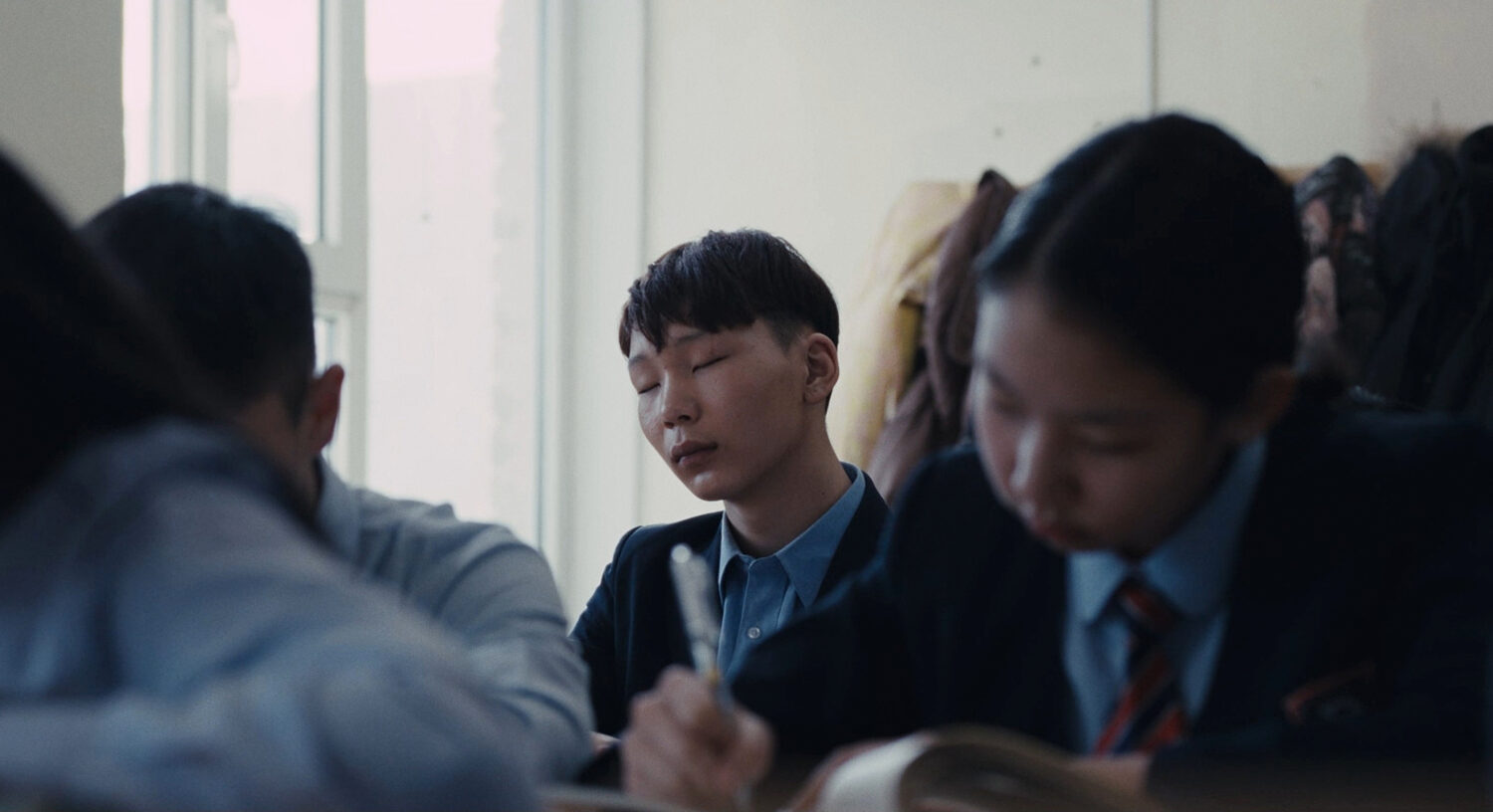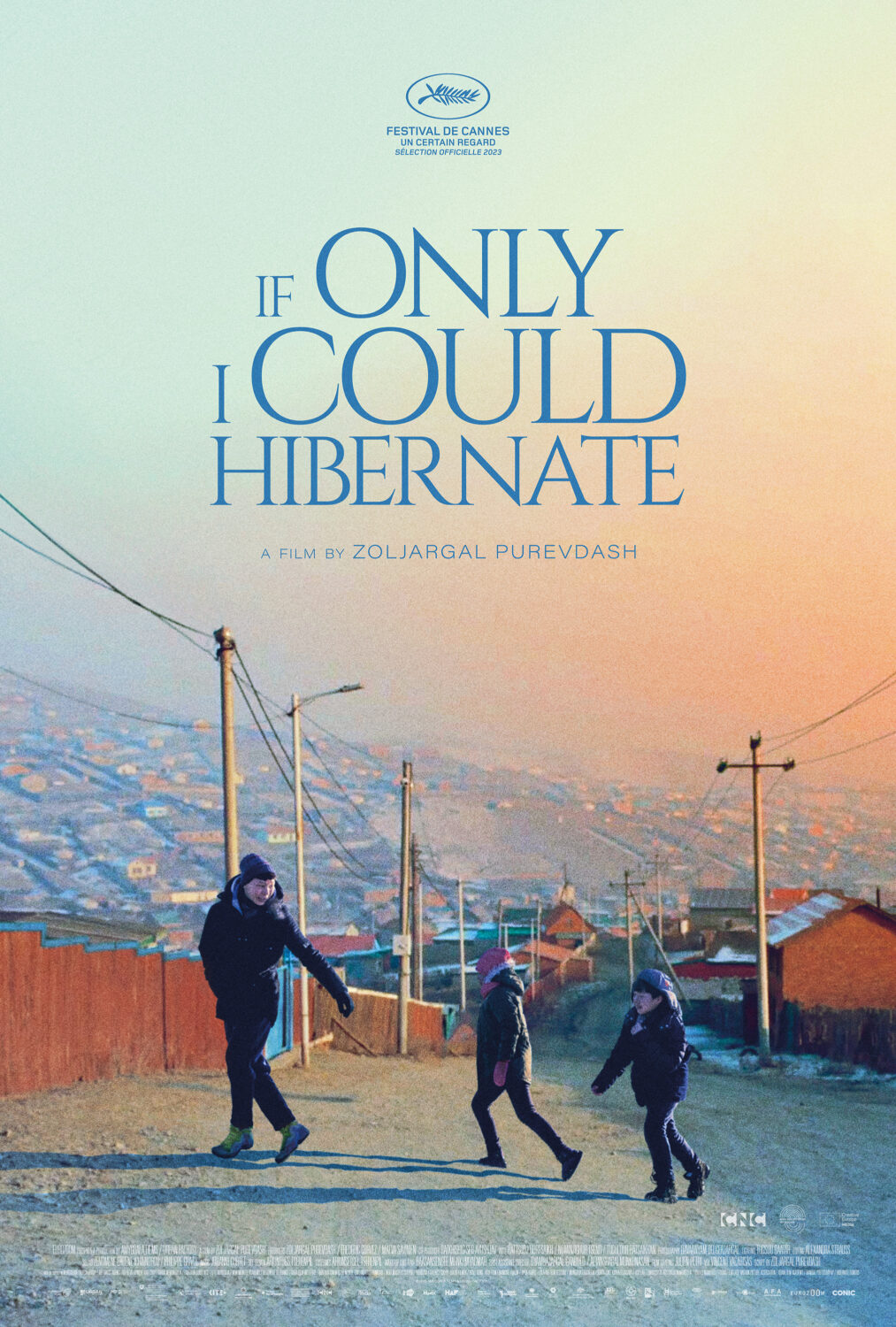After Making History at Cannes Film Festival, Mongolian Director Zoljargal Purevdash Looks Ahead
By Keshav AnandZoljargal Purevdash’s feature debut, If Only I Could Hibernate, tenderly depicts the experiences of a family facing adverse living conditions in Mongolia’s Ulaanbaatar district. The film launched to great acclaim at Cannes Film Festival last year, making history as the first ever Mongolian film in the Official Selection.
Emphasising the transformative power of education, through the lens of a determined teenager, Purevdash’s work tangentially broaches various societal issues encountered in Mongolia today — primarily, the pervasive and complex reality of air pollution.
Following a triumphant journey across international film festivals, If Only I Could Hibernate will open in cinemas in the UK and Ireland on 19 April 2024. Ahead of the release — to learn more about the trailblazing project and Purevdash’s ambitions for the future — Keshav Anand spoke with the director.
Keshav Anand: Can you tell us about your background and journey to filmmaking?
Zoljargal Purevdash: I grew up in the Yurt district, the area that you see in If Only I Could Hibernate. I was a teenager who loved physics and I loved attending physics competitions. But, I never won a gold medal. Most of the kids who won gold medals were from a good private high school in town. So I asked my mom to send me to that good high school and she did.
I have admired watching movies since I was a kid but never dared to say that I wanted to become a filmmaker – because art is always considered a profession that is hard to make money from, and I had an obligation to take care of my family since I am the oldest kid. But, when I entered that high school there was a drama club and I couldn’t resist falling in love with art. Luckily, I got selected for a scholarship to study filmmaking in Japan.
KA: What inspired you to make If Only I Could Hibernate?
ZP: Ulaanbaatar is one of the coldest capital cities in the world. People who live in the Yurt district burn coal to survive this brutal winter and that causes a serious air pollution problem. In the winter of 2016-2017, there were demonstrations organised against air pollution. People who live in the apartment area were extremely angry towards the Yurt district people. That made me feel very offended because I knew nobody burns coal to poison the other part of the city. What we breathe is poverty, not pollution.

My mom had a little corner shop in the Yurt district. So I know very well about how people live there and what they are going through. I feel sad about how my society is polarised too much and living far from each other’s pain and glory. So I decided to make a minimal story of a passionate teenager who is dreaming of winning a gold medal at the National Physics Competition while looking for things to burn on his stove every night. I wanted to make a film that could bring mutual understanding – a chance to embrace each other on what we are going through, and what we should do to solve it.
KA: Could you elaborate on the casting process — how did you decide on Battsooj Uurtsaikh to play Ulzii?
ZP: I only wanted to cast the kids who have been living in the Yurt district. Kids who wake up in -35°C. Kids who go to the water kiosk in -35°C. Kids who know how to make fire and cut wood. It was crucial for a realistic film. So, I posted a casting call on Facebook and I asked kids to send me a 3 minute video about their favourite movie. I received over 200 videos and I called the kids who I felt had a similar energy to the character I was looking for.
Battsooj was very special from the beginning. I felt these energies from him so I called him for the audition. We tried several scenes together in several different ways. He was such a smart kid who was also conscious of all the social issues that we are facing. So I decided to cast him confidently. Then all the child actors did two weeks of rehearsal together.

KA: How was the experience filming on location in Ulaanbaatar?
ZP: We shot during extreme coldness and COVID-19. It was very challenging. We shot for 30 days for 3 months, 10 days each month. All the shooting crew were Mongolians, mostly first-timers – first-time director, first-time cinematographer, first-time production designer. But we had this big passion to tell these stories of kids who are living in vulnerable situations. We really wanted to give a voice to the kids who are struggling in the Yurt district of Ulaanbaatar. So our passion made us resist and create the best we could.
KA: How do you feel about your work becoming the first ever Mongolian film to be included in the Official Selection at Cannes Film Festival?
ZP: It is a big honour for me. It was such a dream come true moment. There are over 20 organizations, and 80 plus people donated to make this film. These people wanted to tell this story. It is really made with love and kindness – somehow this love is transferred into the screen. I am so grateful that the Cannes Film Festival felt it too.
KA: Are you able to talk about any upcoming projects you have in the works?
ZP: I already started writing my second film. It is a dark comedy. Ulaanbaatar is still very polluted and I really want my daughters to breathe clean air in their hometown. So I want to keep on making films that could lead society to start discussing the reasons for the problems we are facing and find further smart solutions.
If Only I Could Hibernate will be in UK and Irish cinemas from 19 April 2024.
Feature image: Still from If Only I Could Hibernate